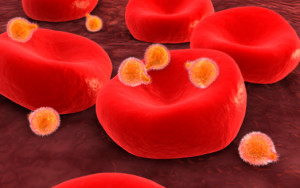Sub-Saharan African carries the heaviest burden of malaria and transfusion transmitted infections. In Ghana, approximately 50% of blood donors are parasitaemic, and estimates of transfusion-transmitted malaria range from 14-28%.
In a randomized controlled trial, recently published in The Lancet, researchers investigated the effect of the Mirasol whole blood pathogen reduction system on Plasmodium transmission. Transfused patients (n=226) were randomized to receive either standard, untreated whole blood transfusions (n=113) or whole blood treated with the Mirasol pathogen reduction system (n=113). Overall, 65 patients (28 treated and 37 untreated) were exposed to parasitaemic blood. The incidence of transfusion-transmitted malaria was significantly lower in the pathogen-reduced group (1/28 [4%] vs. 8/37 [22%]; p=0.039), and adverse events were similar in both groups. This study demonstrates that whole blood pathogen reduction decreases the incidence of transfusion-transmitted malaria and likely could have a significant impact on reducing transfusion transmitted infections throughout Africa and the rest of the world.
References
- Allain JP, Owusu-Ofori AK, Assennato SM, Marschner S, Goodrich RP, Owusu-Ofori S. Effect of Plasmodium inactivation in whole blood on the incidence of blood transfusion-transmitted malaria in endemic regions: the African investigation of the Mirasol System (AIMS) randomized controlled trial. The Lancet 2016; 387: 1753-1761.
- O’Brian SF. Transfusion-transmitted malaria: is hope around the corner? The Lancet 2016: 387: 1701-1703.

